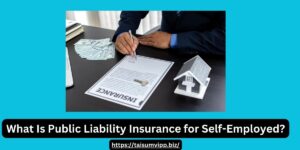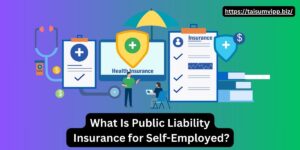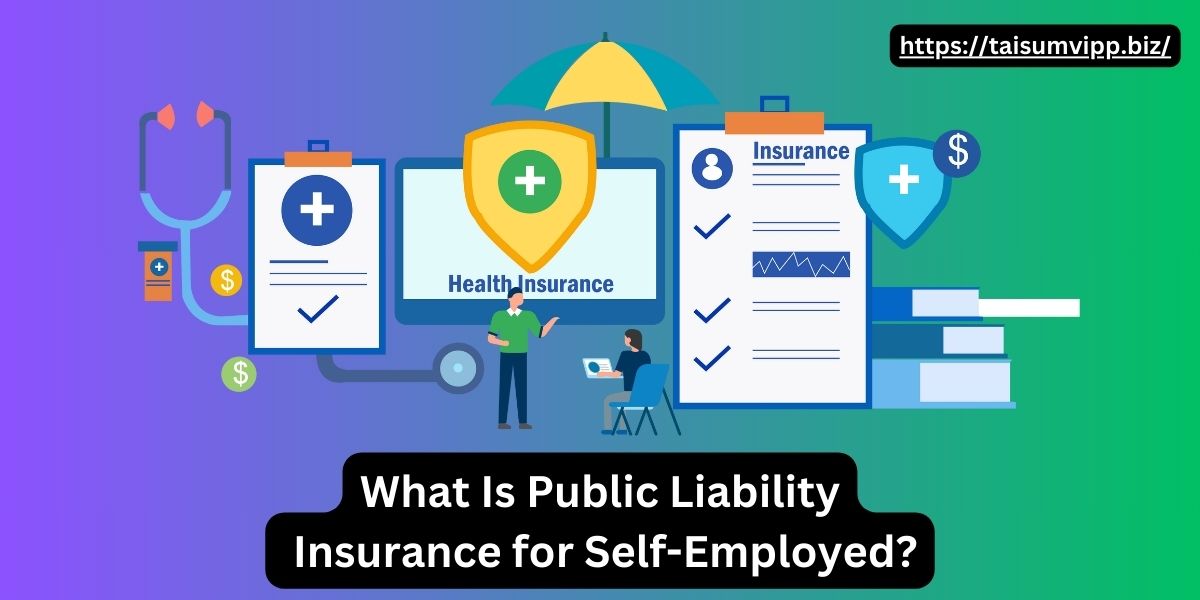Public liability insurance is a crucial safeguard for self-employed individuals and small business owners alike. It protects against claims made by clients or members of the public for injuries or damages resulting from the business’s activities. Understanding its intricacies can help self-employed professionals make informed decisions regarding their insurance needs, ensuring their enterprises remain protected from significant financial burdens.
Understanding Public Liability Insurance
Definition of Public Liability Insurance
Public liability insurance is a type of coverage that provides financial protection to businesses in the event they are found liable for accidental injury or property damage to third parties. This can include physical injuries to clients or visitors, as well as damage to their property caused by your business activities.

For example, if a client trips over your equipment while visiting your office and sustains an injury, they may file a claim against you. Public liability insurance would cover the legal costs and any compensation awarded. This type of insurance can apply in various professional settings, making it a versatile asset for self-employed individuals.
Additionally, public liability insurance can encompass a wide range of scenarios beyond just physical injuries. For instance, if a contractor accidentally damages a client’s property while performing work, or if a customer slips on a wet floor in a retail store, the financial implications can be significant. The coverage not only protects against direct claims but also helps in managing the associated legal processes, which can be complex and time-consuming. Understanding the nuances of this insurance can help business owners tailor their policies to fit their specific risk profiles.
Importance of Public Liability Insurance
The importance of public liability insurance cannot be overstated. In a world where accidents can occur at any time, having this coverage means you’re financially equipped to handle unexpected incidents. Without it, a single claim can lead to substantial legal fees and compensation payments that could jeopardize your financial stability and business continuity.
Moreover, having public liability insurance can enhance your reputation as a professional. Clients and partners are more likely to engage with someone who demonstrates a commitment to risk management. This coverage can be seen as a testament to your business’s reliability and professionalism.
Furthermore, many contracts and agreements now require proof of public liability insurance before any work can commence. This is particularly true in industries such as construction, hospitality, and event management, where the risk of accidents is higher. By securing this insurance, businesses not only protect themselves but also open doors to new opportunities and partnerships that may otherwise be inaccessible. It serves as a critical component of a comprehensive risk management strategy, ensuring that businesses can operate with confidence and peace of mind in their respective fields.
The Scope of Public Liability Insurance
What Does Public Liability Insurance Cover?
Public liability insurance typically covers a variety of scenarios, including:
- Injury to third parties: This includes any physical injuries caused by your actions or business operations.
- Property damage: If your business activities result in damage to someone’s property, this coverage can help pay for repairs or replacements.
- Legal expenses: If a claim leads to legal action, the insurance could cover legal fees associated with defending the case.
- Medical expenses: If a third party needs immediate medical assistance due to an accident involving your business, this insurance can help with those costs.
By providing a safety net for these situations, public liability insurance plays a critical role in protecting your self-employed venture from unforeseen liabilities.
What Doesn’t Public Liability Insurance Cover?
While public liability insurance offers extensive coverage, there are certain exclusions that individuals should be aware of:
- Employee injuries: Claims made by employees would typically be covered under employers’ liability insurance.
- Contractual liabilities: If you’re held liable due to a breach of contract, public liability insurance may not respond.
- Deliberate damage: Any intentional harm or damage caused by the insured is not covered.
- Product liability: Claims related to defective products would require product liability coverage.
Understanding these limitations is essential for self-employed individuals, ensuring that they seek additional coverage where necessary to protect their interests comprehensively.
Public Liability Insurance for the Self-Employed
Why Self-Employed Individuals Need Public Liability Insurance
Self-employed individuals face unique risks that underscore the need for public liability insurance. Unlike larger businesses, they often operate without a safety net of corporate assets. A sudden claim could range from a nuisance to a catastrophic event that impacts their personal finances and professional reputation.
For professionals such as consultants, tradespeople, and freelancers, workplace accidents or claims from clients can occur at any moment. With public liability insurance, self-employed individuals can manage these risks effectively, allowing them to focus on their work without the constant fear of financial repercussions from claims.
How to Choose the Right Public Liability Insurance
Finding the right public liability insurance involves several steps. Here are key considerations:
- Assess your risks: Determine the potential risks your business faces and how likely you are to encounter claims.
- Evaluate coverage amounts: Ensure that your policy has sufficient limits to cover the potential costs of claims.
- Compare providers: Research different insurance providers and compare their offerings, deductibles, and service reviews.
- Read the fine print: Understand what is covered and what is excluded in the policy terms to avoid surprises.
- Seek professional advice: Consult with an insurance broker to gain insights tailored to your specific needs.
Following these steps can help self-employed individuals secure coverage that meets their unique business requirements efficiently.
Costs and Considerations
Factors Influencing the Cost of Public Liability Insurance
The cost of public liability insurance varies widely based on several factors:
- Industry type: Different industries have varying levels of risk, which can affect premiums.
- Business size: Larger businesses may face higher risks and thus higher premiums.
- Coverage limits: Higher coverage limits usually lead to increased costs.
- Claims history: A history of frequent claims can result in higher insurance costs.
Understanding these factors can help self-employed individuals budget appropriately for their insurance needs without overextending themselves financially.
Tips for Reducing Public Liability Insurance Costs
Here are some effective strategies to potentially reduce the costs of public liability insurance:
- Bundle policies: Consider enrolling in multiple types of insurance with the same provider to receive discounts.
- Implement risk management strategies: Proactive measures to reduce workplace risks can lead to lower premiums.
- Shop around: Regularly compare quotes from different insurers to ensure you’re getting the best deal.
- Maintain a clean claims record: A history without claims can lead to favorable premium rates.
By taking these steps, self-employed professionals can save money while still maintaining the essential coverage they need.
Frequently Asked Questions about Public Liability Insurance
Common Misconceptions about Public Liability Insurance
Many misconceptions surround public liability insurance, often leading to confusion. One common myth is that it covers losses to your own property. In reality, this insurance primarily protects against claims from third parties.

Another misconception is that every self-employed individual needs the same level of coverage. In fact, the amount of coverage required greatly depends on the nature and scale of your business operations.
Addressing Common Queries about Public Liability Insurance
Self-employed individuals often have queries regarding public liability insurance. Some frequently asked questions include:
- Is it mandatory? Public liability insurance is not legally required, but it is highly recommended for many professions.
- How can claims be made? Claims typically involve notifying your insurance provider immediately after an incident.
- What should I do if I receive a claim? Consult with your insurer promptly for guidance on the next steps.
Addressing these queries and misconceptions helps self-employed individuals confidently navigate their public liability insurance options, safeguarding their business and peace of mind.

